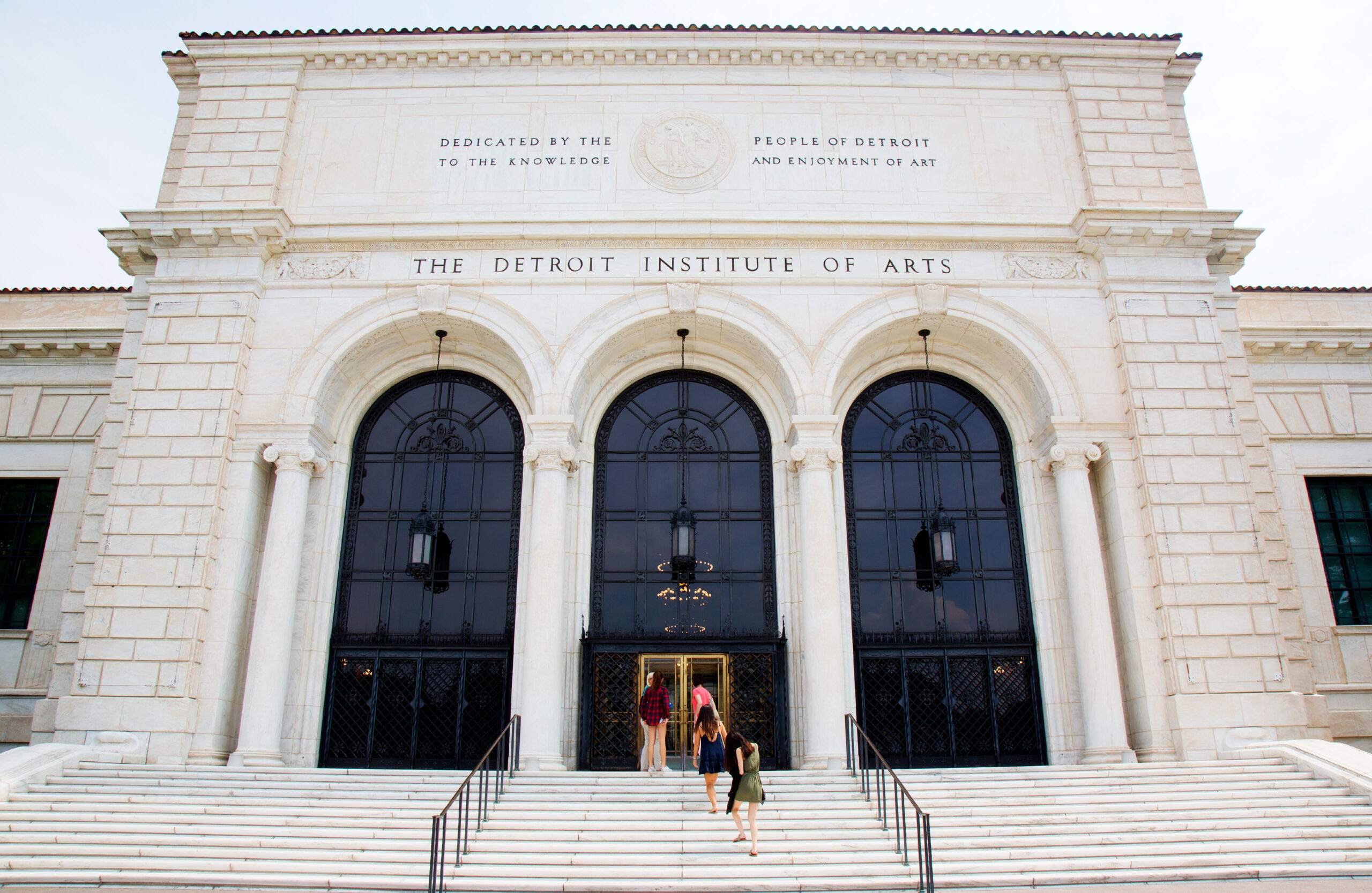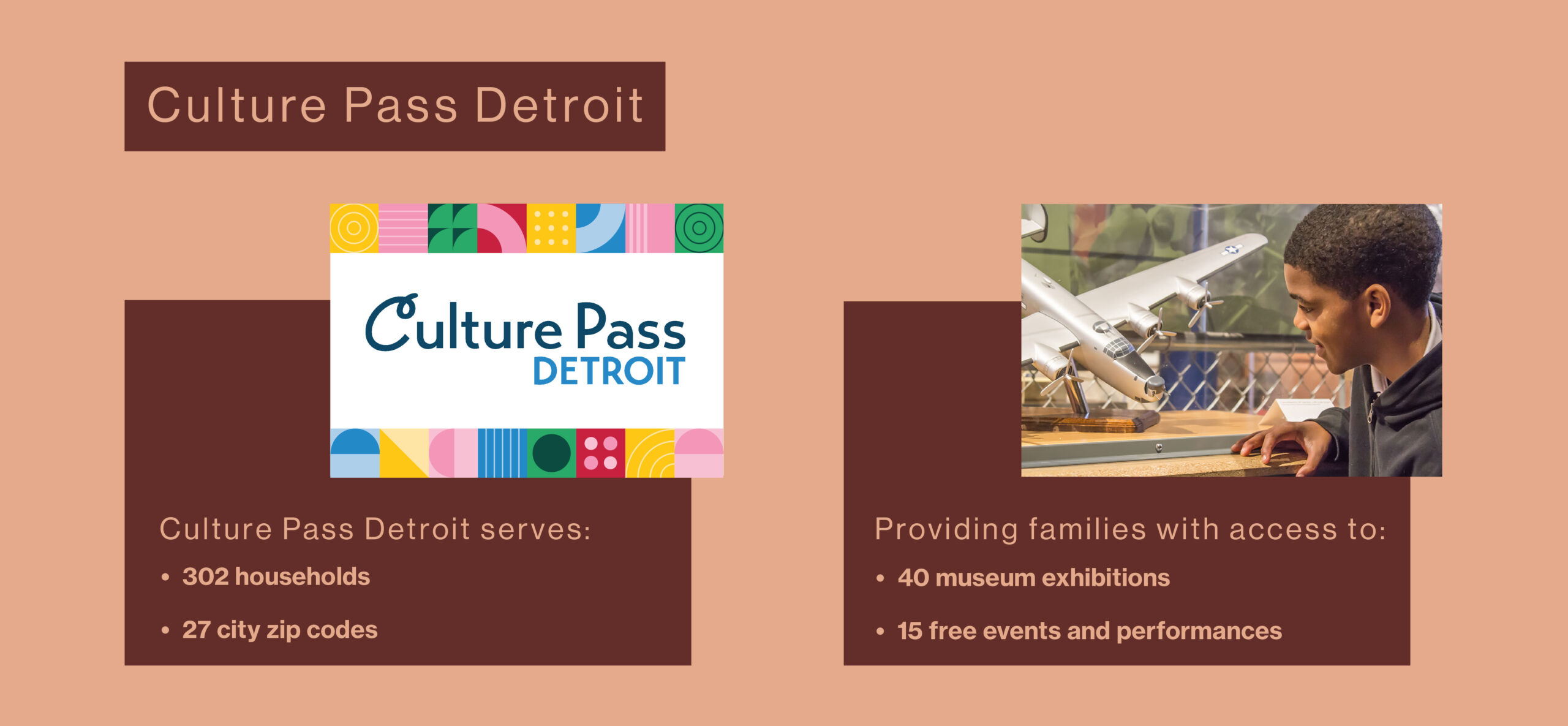Expanding Access to Detroit’s Cultural Treasures: Introducing Culture Pass Detroit
Building OpportunityArts & CultureJan 17, 2025

In the summer of 2024, we launched an innovative program in service of our mission to create universal access to the arts : It’s called Culture Pass Detroit, and in the past six months this initiative provided 300 Detroit families with free memberships to the city’s premier arts and cultural institutions. Through the Arts & Culture Pass Program, participating families have unlimited access to some of Detroit’s most celebrated cultural destinations. This program highlights our commitment to ensuring that all families have access to the rich arts and cultural legacy that makes Detroit so unique.
Culture Pass Detroit wouldn’t be available without the thoughtful collaboration of our trusted partners at the Detroit Housing Network and Connect Detroit. First, DHN identifies residents and families who are eligible to join the program. Connect Detroit manages the day-to-day logistics of running the program, including onboarding new families, ticket giveaways, transportation support and coordinating special events. Five of Detroit’s most renowned arts and cultural organizations offer programming and services:

The Culture Pass Detroit removes financial barriers that often prevent families from fully participating in the arts by creating a pathway for them to explore, learn, and grow together through cultural experiences that might otherwise remain out of reach. “Culture Pass Detroit is important because it gives families the freedom not to worry about if they can afford to participate in cultural experiences right here in their city,” said Akua Hill, Director of Arts & Culture at the Gilbert Family Foundation. “It fosters a sense of belonging and warm welcome to explore the cultural institutions in their backyard, and increases opportunities for families to engage with art, artists and arts organizations that are embedded in their communities.”
We’ve always said that arts and culture aren’t just luxuries; they are integral parts of building stronger, more resilient communities. When families engage with the arts, they develop new perspectives, spark creativity, and forge stronger connections with their neighbors and their city. Cultural institutions serve as gathering spaces where diverse audiences come together, share experiences, and build the kind of mutual understanding that builds connections and curiosity. “It’s been wonderful to hear directly from members who are attending Culture Pass experiences with their families – especially children,” said Andrea Scobie, Senior Program Manager on our Arts & Culture team. “We’ve heard from folks who have introduced their grandchildren to dance through a performance at the Detroit Opera House, or who have spent multiple afternoons with nieces and nephews at the Detroit Historical Museum. That connectivity is a key part of the impact of the arts, and a reason why programs like this one are so necessary.”
“Thank you for the Culture Pass Detroit program. I took my granddaughter to the ballet, and she was mesmerized. She told me, ‘Granny, I’ll never forget today!’” –Culture Pass Detroit Participant (Respondents were anonymous)
The Gilbert Family Foundation has invested $350,000 into the Culture Pass pilot program. Our plan is to grow the program each year by partnering with additional arts and cultural organizations, music festivals and more, and increasing the number of participants. Within three years, we will have invested $1M into this initiative. We believe Culture Pass is about more than just free memberships – it’s an invitation to Detroit families to participate and celebrate Detroit’s cultural vibrancy. “Ensuring equitable access to the arts is a core goal of our work on the arts and culture team, and this program is at the heart of it,” said Scobie. “Everybody – everybody – deserves to experience and explore arts and culture activities that speak to them, and Detroit’s artists and cultural institutions of all sizes play a critical role in strengthening our communities.”